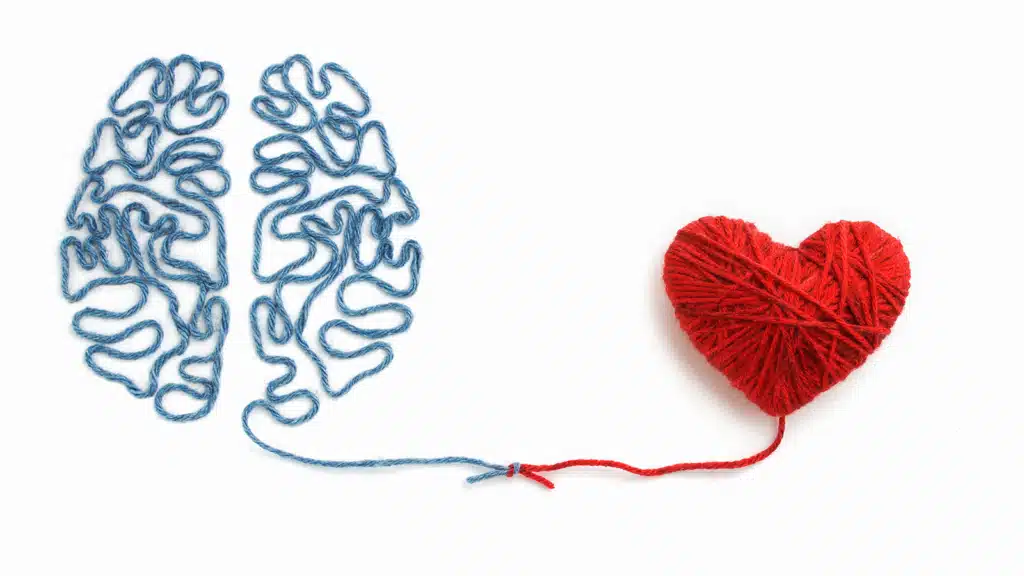Trauma Responsive & Healing Centered - Investing
Learning Playlists > Trauma Responsive & Healing Centered – Investing
This playlist guides schools in embedding trauma-responsive practices into long-term systems and structures. At this stage, there is a strong emphasis on sustaining staff well-being, nurturing leadership, and cultivating a culture of continuous growth. Self-awareness evolves into a collective responsibility, where schools center shared values, deepen relational trust, and pursue equitable change through intentional collaboration and systemic integration.
These resources are focused on self-awareness. Schools who have already done a substantial amount of work on this topic, including collective learning, reflection and professional development, can look to these resources to solidify the work and to maintain buy-in from staff and administration. This Investing playlist guides schools in embedding trauma-responsive practices into long-term systems and structures. At this stage, there is a strong emphasis on sustaining staff well-being, nurturing leadership, and cultivating a culture of continuous growth. Self-awareness evolves into a collective responsibility, where schools center shared values, deepen relational trust, and pursue equitable change through intentional collaboration and systemic integration. Click here for our Action Planning Guide to help you through the process of creating an action plan that will help your school move towards becoming a more resilience-supportive school community.

The TRS-IA is an evidence-informed self-assessment that comprises eight key domains of trauma-responsive schools and districts. It encompasses 8 domains: 1) whole school prevention planning; 2) whole school safety planning; 3) whole school trauma programming; 4) target trauma-informed programming; 5) prevention/early intervention trauma programming; 6) classroom strategies; 7) staff self-care; 8) family and community engagement. Click here for the Assessment Guide to help your team through this process.
You can take the CARE Assessment on the RSSI site at www.rss-illinois.net. Download a copy of the assessment here. For more information about the School Mental Health Quality Assessment, visit the SHAPE System at the National Center for School Mental Health by clicking here.
- 10 minutes

Taking care of yourself is vital. It can be challenging to prioritize time for yourself when there are so many other people and things to take care of in life. But focusing on others, whether it’s family, students or friends, is difficult if you haven’t already taken care of your needs. We also need to call out the need for collective or community care, which is communal responsibility of the group rather than the lone task of an individual. By the end of this course, participants will be able to: understand the definitions of commonly used terms; increase knowledge about the ABCs of self-care; learn about collective care and healing-centered environments; complete your Action Plan with your self-care information.
- 30 minutes

Based on existing research and best practices, the Dual Capacity-Building Framework for Family-School Partnerships (Version 2) is designed to support the development of family engagement strategies, policies, and programs. It is not a blueprint for engagement initiatives, which must be designed to fit the particular contexts in which they are carried out. Instead, the Framework should be seen as a compass, laying out the goals and conditions necessary to chart a path toward effective family engagement efforts that are linked to student achievement and school improvement.
A Family Engagement Framework for All | Harvard Graduate School of Education
- 10 minutes

This field guide gives guidance on responding to disaster or terrorism events using the Psychological First Aid intervention. This evidence-informed approach helps to assist children, adolescents, adults, and families in the aftermath of disaster and terrorism. The manual includes in-depth information about each of the eight core actions and accompanying handouts for adults, adolescents, parents and caregivers, and providers.
- 60 mins

- 15 mins
By understanding the warning signs of burnout, promoting collaboration and collective efficacy, and upholding a work culture that destigmatizes teacher health challenges, districts can promote a positive school climate and increase staff retention. This article describes how to identify teacher burnout and promote collective school staff well-being to increase professional retention and student achievement.

While the term ‘trauma-informed care’ is important, it is incomplete,” says Dr. Shawn Ginwright. One of its shortcomings is that it leads people to think of trauma as only an individual experience instead of thinking about it in terms of systems or contexts. Ginwright explains how we need to have a broader perspective of how the environment – where young people live and play – can be traumatizing, This article describes 5 parts of healing centered engagement:
- culture
- agency
- relationships
- meaning
- aspirations
5 Strategies for developing a school-wide culture of healing | KQED
- 8 mins

Although youth are at risk for exposure to adversity and trauma, many youth, especially ethnic and racial minorities, do not have access to mental health care. Resilience-building curriculums can teach important internal resilience skills and provide support to students who may not receive prevention or treatment services. The researchers adapted a resilience curriculum initially used for military-connected youth facing adversities related to parental wartime deployments, to meet the needs of low-income, predominantly racial and ethnic minority students in a large urban school district. This article describes the cultural adaptation, the implementation process, and the evaluation of the trauma-informed resilience curriculum using pre-post surveys and focus group discussions.
- 20 minutes

- 20 minutes
Using the information and tools discussed in this toolkit to address targeted areas of need in a school can improve services. Areas such as special education and discipline processes immediately come to mind as ones that benefit
from the implementation of trauma-informed, resilience-oriented approaches. Sustainable, lasting change that positively impacts the lives of the whole school community requires a larger vision and plan, the involvement of all key collaborators, ta, ongoing evaluation, and strong leadership at all stages of implementation. The section in this toolkit, Implementing and Evaluating Your Trauma-Informed, Resilience-Oriented Innovations, outlines key action steps to move this work forward, and offers implementation tools your team can use to increase the voice of the student and family, the emotional safety of the school, collaboration, inclusion, and engagement of all.

- 15 minutes
This brief from the Praxis Project showcases the importance of addressing community trauma through identifying and making space for healing-centered practices that communities have evolved over time, acknowledging and understanding the roots of trauma, and addressing the persistent, structural causes of trauma. It describes how trauma shows up in our communities and institutions, how it can be addressed through community- centered healing, and the role that trusted partners can take in supporting community healing. Download a free copy of the brief from this link.

- 10 minutes
We live in a world where all children can experience challenges with their mental health, including those caused by trauma.
We know all children can heal after trauma; this includes children with intellectual and developmental disabilities (IDD).
Sometimes recovery from trauma requires partnership with child- and family-focused mental health care providers. Caregivers play a large and important role in their child’s treatment and recovery, so having information about what help is critical. It might be time to seek help from a mental health provider if a child has experienced trauma, or you notice concerning changes in your child’s behavior or mood that suggest a traumatic experience may have occurred. For more information on that, check out Understanding Trauma Responses in Children with Intellectual and Developmental Disabilities
and When to Seek Help. This is especially the case if these changes leave caregivers feeling overwhelmed.
